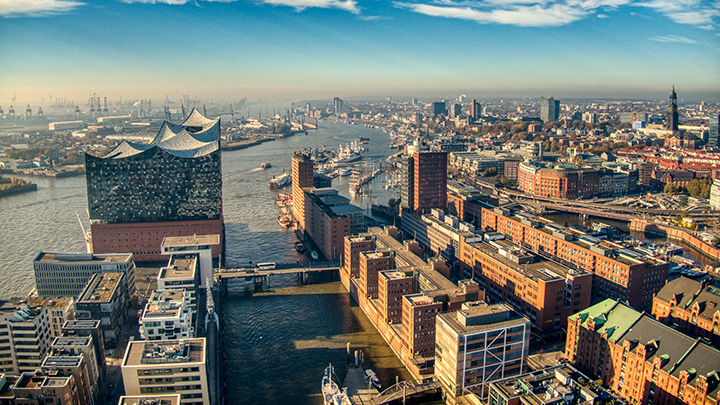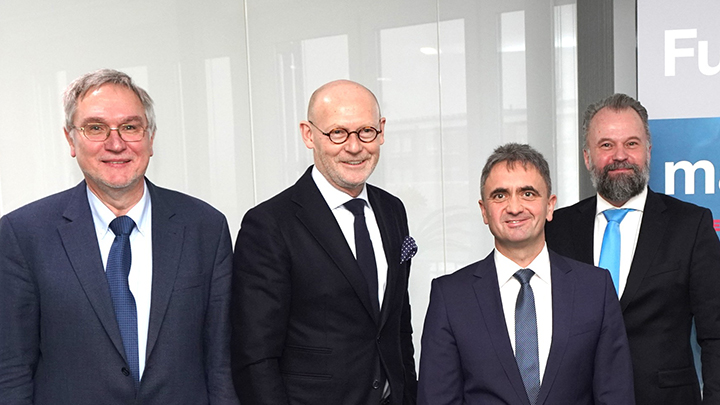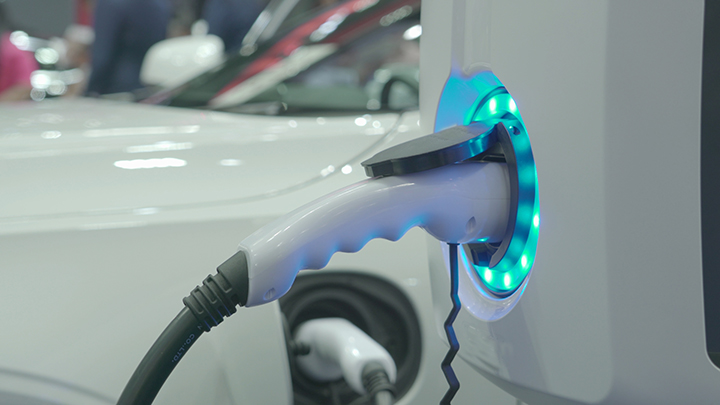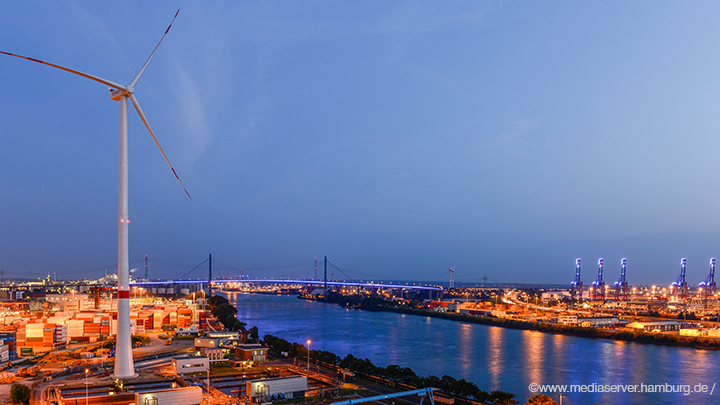Can the German city of Hamburg become a model for the sustainable city of the future?
Hamburg’s ambitious aim to become a Climate Smart City can only be reached if it treats energy systems transformation holistically. A research project outlines challenges and suggests solutions for efficient, sustainable and resilient urban energy supply and storage systems.
The city of Hamburg’s motto, inscribed on the town hall façade, dates back to the Middle Ages, but it reads like it could have been written by Generation Climate Change. Loosely translated from Latin, it proclaims: “The freedom won by our elders, may posterity strive to preserve it in dignity."
Today the “elders” – i.e. the politicians of the Free and Hanseatic City’s Senate – are working to ensure “posterity” will also have a livable environment in which to preserve that dignity and freedom. These elders already have ambitious plans …
The Hamburg Climate Plan, which is currently under review, aims to halve the city’s CO2 emissions by 2030. As the most recent available statistics confirm, it already achieved a reduction by 18.7% between 1990 and 2016.
Nevertheless, there is still a long way to go before the Climate Smart City becomes reality.The Senate is driving more than 200 projects all around the city – from increasing renewable energy supply to the transformation of urban spaces, sustainable heating to green mobility – to name just a few.

Hamburg aims to halve the city’s CO2 emissions by 2030.
To prove the effectiveness of the climate plan and to identify improvement potential, Prof. Dr.-Ing. Gerhard Schmitz, head of the Hamburg University of Technology’s (TUHH) Institute of Engineering Thermodynamics, has evaluated the resilience of the city’s complex energy system and draws conclusions that can be applied not only to Hamburg, but to all urban power networks. According to Prof. Schmitz, “In future, energy supply will look more diverse than today, making planning more difficult, so simple answers would be misleading.”

Prof. Gerhard Schmitz (Head of the Hamburg University of Technology’s (TUHH) Institute of Engineering Thermodynamics), Michael Westhagemann (Hamburg’s Senator for Commerce, Transport and Innovation), Uwe Lauber (CEO MAN Energy Solutions) and Thorsten Lehmann (Site Director of MAN Energy Solutions in Hamburg)

Hamburg already offers more public charging stations than any other German city
An energy system must be considered as a whole, taking in aspects like the supplier, consumer, different forms of energy storage and all types of energy, while making allowances for sustainability, economic factors and the resilience of the entire network. “For instance, today it is almost taken for granted that electric vehicles will drive around cities in the near future,” he explains, with view to one of Hamburg’s flagship projects.
The city already offers 900 public charging stations for electric vehicles, more than any other city in Germany, and subsidizes private and corporate installation of chargers. However, Prof. Schmitz notes, “to be able to recharge numerous e-vehicles overnight will require more efficient inner-city power lines. The problem is exacerbated if the inner-city area is only heated with electric heat pumps. Energy supply should therefore derive from different sources in the future.”
Several strategic innovations defined by the city’s climate plan already address these issues and offer a variety of solutions. The pilot project “NEW 4.0” is to provide 100% sustainable energy for the entire region Hamburg/Schleswig-Holstein, home to a total of 4.5 million people, by 2035. This involves a significant grid expansion to bring wind energy from the coast to the city. However, other projects running in parallel ensure diversification, for instance, by delivering district heating and industrial waste heat to residential and commercial properties. Finally, a local power-to-heat plant already harnesses excess wind power, converting it to heat in high-yield times. It supplies 13,000 households and prevents the curtailment of 15 wind turbines in times of excess energy.
The TUHH study shores up the feasibility of Hamburg’s climate plan, showing that the city’s energy system doesn’t require any fundamental changes. It does, however, need to be maintained, developed and diversified. The crucial point identified by Prof. Schmitz and his team is energy storage, similar to, but even more ambitious than the exemplary power-to-heat plant: “Especially biogas, hydrogen and synthetic gas are storable, which makes them important for future systems.”
Hamburg’s climate plan acknowledges that urban energy transition demands replacing fossil fuels with renewable energies wherever possible. As the renewable power directly available in cities is limited, green energy supply must be achieved through
indirect use. In practical terms, this means the use of electricity or hydrogen generated from renewable energies instead of fossil fuels, for example in electromobility, heat pumps or new power applications in the industry. This requires a significantly
expanded renewable electricity generation across Germany.

Wind turbines electrify Hamburg’s harbor, one of the city’s most important economic contributors
“Hamburg has always been at the forefront of energy management,” Prof. Schmitz concludes, “and now the city can be an example for sustainable urban energy supply.” A successful climate strategy could help Hamburg stay true to its own motto – and serve as a role model for sustainability strategies in cities around the world.
The city of Hamburg is committed to the international climate goals of the Paris Agreement and has set concrete goals: By 2030 we want to reduce CO2 emissions in the city by half
TransiEnt Library
Having identified the lack of a general plan for energy transition in Germany as an overarching issue, Prof. Schmitz’ team developed the TransiEnt Library. This library can be used to map existing power sources, evaluate their sustainability, efficiency and resilience, then use that data to plan future urban energy networks.
